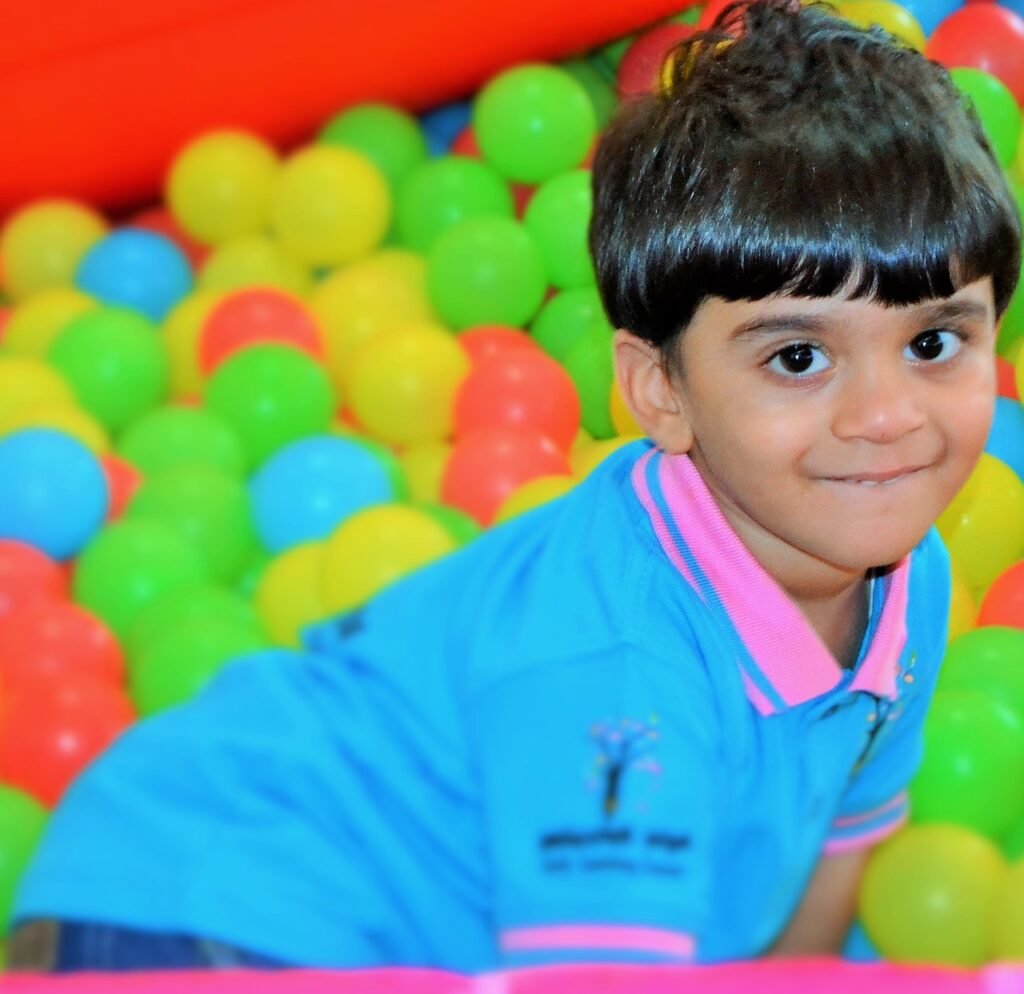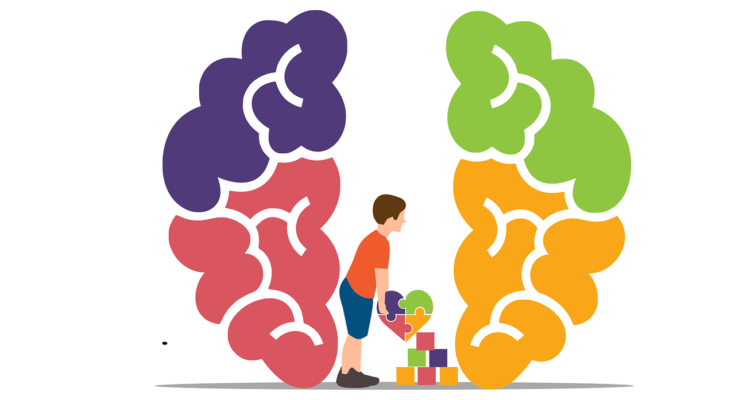Children diagnosed with high functioning autism in preschool age present a combination of difficulties and positive learning opportunities. Every child has distinct characteristics which parents must learn to grasp for their children to achieve success. High functioning autism in preschoolers often presents as differences in communication, social interactions, and sensory sensitivities. Your knowledge about supporting your child’s growth between birth and three years of age creates substantial advantages for their development.
Read this guide for specific guidance on parental techniques which will assist you through routine difficulties along with delivering care for your child.
Read More About Parenting Here
Understanding High Functioning Autism in Preschoolers
The autism term High-Functioning Autism (HFA) describes autistic children who possess superior cognitive functions simultaneously with their difficulties in social relationships communication and sensory management. Children with high functioning autism in preschool show typical or superior communication abilities and academic performance because their autism manifests through social communication difficulties alone. High-functioning autistic children encounter challenges when processing social gestures and showing their emotions and adapting to new routines.
The earlier parents detect HFA symptoms in their preschool children the easier it becomes to take necessary steps toward helping their child develop. Common signs include:
- Difficulty making eye contact
- Repetitive behaviors or fixations on specific interests
- Sensory processing challenges cause children to react strongly to both loud noises along with textures they find uncomfortable.
- The individual has challenges recognizing both emotions displayed by others and social interactions between people.
- Preference for routine and difficulty with change
Providing guidance for parenting a preschooler child with high-functioning autism involves the following advice.

1. Build a Structured Routine
Children with high functioning autism in preschoolers benefit most from following daily schedules. The feeling of security alongside safety comes from predictability for children with autism spectrum disorder or autistic toddlers. Parents should establish one daily arrangement that combines fixed times for eating and playing along with standard bedtime contexts. Visual schedules using pictures or charts will help preschoolers with high-functioning autism understand their daily activities.
Before making changes you should notify your child in advance. You should explain upcoming life changes to them in a peaceful and reassuring way so they can adjust properly.
2. Encourage Social Skills in a Safe Way

The development of social abilities presents ongoing difficulties to preschool kids who have high functioning autism in preschoolers. Your child needs direct instruction about social skills, which you should deliver through carefully planned playdates, social stories, and role-playing activities. Children should maintain proper turn-taking practices while they share their space with others and make visual contact.
Explain facial expressions to the child by using conversational speech. The reading of books about emotions enables children to enhance their ability to recognize and interpret various emotions.
3. Support Sensory Needs
Sensory sensitivities affect numerous preschool children who have high functioning autism in preschoolers. The nervous system of your child reacts negatively to loud noises as well as bright lights and specific textured materials. Identify the causes of distress for your child so you can adjust the situation appropriately.
Parents of sensitive children should obtain noise-canceling headphones as an aid. Let them have control over selecting both comfortable clothes and foods they do not find unpleasant to touch. A sensory-friendly home environment provides comfort to children with autism.
4. Encourage Communication
The development of social abilities presents ongoing difficulties to preschool kids who have high functioning autism in preschoolers. Personal factors that affect child development, such as social and communication skills, play a crucial role in helping these children navigate interactions with others. Your child needs direct instruction about social skills, which you should deliver through carefully planned playdates, social stories, and role-playing activities. Children should maintain proper turn-taking practices while they share their space with others and make visual contact.
Explain facial expressions to the child by using conversational speech. Reading books about emotions enables children to enhance their ability to recognize and interpret various emotions, fostering better social understanding.
5. Use Positive Reinforcement

Recognition, along with psychological backing, drives preschoolers with high functioning autism in preschoolers to perform better in their early school years. Personal factors that affect child development, such as encouragement and positive reinforcement, play a crucial role in their growth. Your praise should acknowledge their hard work and reward minor accomplishments. Incentives like stickers, extra free time, or verbal appreciation help motivate children to practice positive behaviors.
Penalizing children should be avoided when their behaviors stem from sensory sensitivities or social challenges. Patient guidance and understanding serve as the proper approach to support and lead your child effectively.
6. Teach Coping Strategies
Children with high functioning autism in preschoolers have trouble controlling their emotions. Display guidance for your child to develop techniques which will protect them from suffering frustration and anxiety. The beneficial practices for managing stress include deep breathing as well as squeezing stress balls and locating peaceful spacings.
Guide your child to understand their signs of distress then show them specific relaxation skills that help them relax. The establishment of a home sanctuary that can offer relaxation benefits these children.
7. Foster Independence
Allow your children with high functioning autism in preschoolers to learn independent abilities according to their individual development pace. Low difficulty tasks such as dressing up and teeth brushing and minor household duties increase their self-esteem levels. The learning process becomes more effective when children break assignments into smaller steps that receive supportive guidance.
Children should have opportunities to choose things for themselves such as selecting their daily apparel or picking snacks from acceptable options. The process enables children to develop both decision abilities and personal independence.
8. Work with Therapists and Educators
Getting expert guidance produces important results for preschool children with high functioning autism in preschoolers in their development. Personal factors that affect child development, such as specialized support, play a key role in fostering growth. Occupational therapists, speech therapists, and behavioral specialists provide customized methods to aid learning and enhance social competencies.
Educators and parents should collaborate to apply consistent educational methods between the home and preschool environments. Establishing a supportive learning atmosphere becomes possible through open and effective professional communication.
9. Take Care of Yourself
Caring for high functioning autism in preschoolers requires strong self-control and determination. Personal factors that affect child development, such as a caregiver’s well-being, play a crucial role in providing effective support. Engaging in self-care activities helps reduce stress, enabling better management of challenging moments.
The process of managing preschool-aged children with autism becomes less overwhelming when you connect with other parents through support groups or seek guidance from mental health professionals. Seeking support benefits both you and your child, even during times when you may feel isolated from others.
FAQs
What does high-functioning autism look like in preschool?
Preschoolers with high-functioning autism face problems in social connections and sensory difficulties while also following routines stubbornly. Autistic preschoolers have trouble recognizing emotions and maintain intense interests or demonstrate problems with adapting to environmental modifications. The autistic individuals among this group exhibit proficient cognitive capabilities which frequently leads to typical or enhanced development of language competence.
Can a child with high-functioning autism lead a normal life?
High-functioning autism does not limit the ability of children to develop into independent adults with fulfilling lives. Supportive interventions along with therapy and guidance enable such children to acquire fundamental social capabilities along with emotional competencies and academic abilities. The right combination of support systems and methods will enable them to succeed even if they encounter difficulties in specific circumstances.
What is highly functional autism?
Highly functional autism refers to a type of autism spectrum condition where patients possess excellent intellectual abilities combined with problems in social abilities as well as sensory processing and communication difficulties. People affected by highly functional autism need assistance but they can develop new abilities through proper intervention programs.
Can level 3 autism live independently?
The most severe autism level demands major support interventions for the patients. Individuals diagnosed with level 3 autism deal with major difficulties in communication and behavioral aspects. Most individuals who receive L3 autism diagnosis need perpetual assistance in managing daily tasks aside from needing lifetime support.
Conclusion
Raising a preschooler with high functioning autism in preschoolers presents unique parenting challenges. However, a steady approach and suitable methods create valuable opportunities for your child to thrive. Personal factors that affect child development, such as structured environments, clear communication, sensory support, and social interaction facilitation, play a crucial role in fostering confidence and independence.
By providing consistency and the right support, parents can help their child navigate early learning experiences and build essential life skills for future success.
The path of development differs among children since progress occurs step by step. Acknowledge minor achievements while obtaining help when the need arises. Love and understanding will allow your child to mature into a contented capable adult.




